Nordwestdeutsche Philharmonie, Antony Hermus - Wagenaar: Summer of Life & Symphonic Poems / vol 2 (2009-2015)
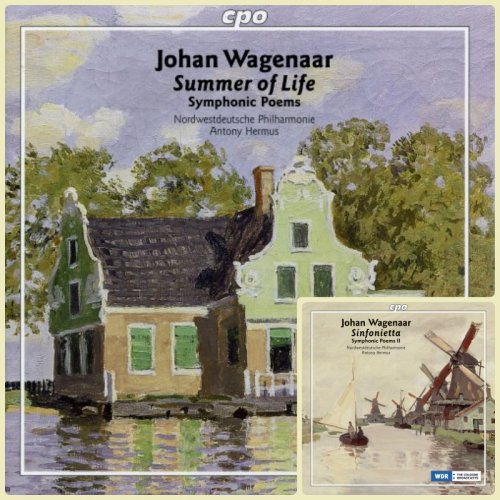
Artist: Nordwestdeutsche Philharmonie, Antony Hermus
Title: Wagenaar: Summer of Life & Symphonic Poems / vol 2
Year Of Release: 2009-2015
Label: CPO
Genre: Classical
Quality: flac lossless (tracks)
Total Time: 00:50:14 / 00:55:25
Total Size: 247 / 301 mb
WebSite: Album Preview
TracklistTitle: Wagenaar: Summer of Life & Symphonic Poems / vol 2
Year Of Release: 2009-2015
Label: CPO
Genre: Classical
Quality: flac lossless (tracks)
Total Time: 00:50:14 / 00:55:25
Total Size: 247 / 301 mb
WebSite: Album Preview
01. The Taming of the Shrew, Op. 25
02. Summer of Life, Op. 21
03. Saul en David, Op. 24
04. Romantic Intermezzo, Op. 13
05. Frithiof's Sea Voyage, Op. 5
Dutch composer Johan Wagenaar is considered post-romantic, but this designation is appropriate only insofar as it applies to the time period in which he lived. Otherwise, Wagenaar's music was just straight up romantic, sounding largely like Richard Wagner but with not as dense a scoring palette. In this respect, his music is more like Brahms or Berlioz. Sometimes Wagenaar is compared to Richard Strauss, but this projection can be a little confusing as the ingredients in Wagenaar's dish are often part Wagner and even part Dvorák; the most significant thing about his fare, though, is that it doesn't taste quite like anything else. Wagenaar can be stubbornly diatonic and he only seldom utilizes chromatic sequences or other envelope-pushing devices, even within acceptably romantic boundaries. From a mid-twentieth century perspective, any or all of these elements would have been the kiss of death in regard to any revival of such a composer except maybe Richard Strauss. In the opening decade of the twenty first century, however, Wagenaar has been gaining some ground; his music has even been heard at festival concerts in the United States, a market proven long resistant to Dutch composers despite decades of lobbying by the publisher Donemus. There's a reason for this: Wagenaar's music is really good.
CPO's Johan Wagenaar: Summer of Life -- Symphonic Poems appears to be the first, full program of Wagenaar's orchestral music on disc since Riccardo Chailly and the Amsterdam Concertgebouw made one for Decca/London in 1990, already a rarity. It, too, contained the Overture De getemde feeks (i.e., The Taming of the Shrew; 1909) and the symphonic poem Saul en David (1906), but the rest of the program here concentrates on earlier pieces. Summer of Life (Levenszomer, 1903) appears to have represented the first flowering of Wagenaar's mature style, whereas the Romantisch Intermezzo (1894) and especially Frithjof's Meerfahrt (Frithiof's Sea Voyage, 1886) may seem like mere juvenilia to those who know Wagenaar well. Nevertheless, Frithjof's Meerfahrt is a fascinating, rough-hewn, and vibrantly exciting piece, more cutting-edge than anything else on this album. To Wagenaar, refinement seems to have meant moving away from the folksy, proto-Sibelian idiom of Frithjof's Meerfahrt and toward a more generically Eurocentric style.
One would like a bit more definition and power than that afforded by the Nordwestdeutsche Philharmonie and Dutch maestro Antony Hermus; the ensemble is a little ragged on occasion, and grand dramatic flourishes in Wagenaar's music come off as a bit anemic at times. But these are generally solid and dependable performances, the recording quality is acceptable if a little distant, and hopefully this will add to a growing body of recordings of this composer. If your taste runs to Wagner, Dvorák, or even Tchaikovsky, you might well find Wagenaar a revelation; while for some listeners he may have been born 30 years too late to ply the trade that he did, in music, dividends do get paid to people who stick with what they are best at.
01. Sinfonietta, Op. 32: I. Allegro giocoso
02. Sinfonietta, Op. 32: II. Adagio non troppo
03. Sinfonietta, Op. 32: III. Molto allegro
04. Sinfonietta, Op. 32: IV. Allegro marciale
05. Frühlingsgewalt, Op. 11 "Fruhlingsgewalt"
06. Elverhöi, Op. 48
07. Amphitrion, Op. 45: Overture
08. Le cid, Op. 27: Overture
Les compositeurs néerlandais du Romantisme jusqu’à l’après-guerre ne sont vraiment pas légion : Diepenbrock, Röntgen, Leo Smit et Johan Wagenaar sont, à dire vrai, les seuls noms qui viennent à l’esprit de votre humble chroniqueur qobuzien. Penchons-nous un peu sur ce dernier Johan Wagenaar (1862-1941), si vous le voulez bien. Après avoir dûment étudié en Allemagne dans le cercle postbrahmsien, il s’en est revenu aux Pays-Bas pour y dérouler une carrière d’organiste, de directeur de conservatoire et de chef d’orchestre – sans oublier ses activités de compositeur, car on lui compte une soixantaine d’œuvres un peu dans tous les genres : opéras, cantates, ouvertures symphoniques, poèmes non moins symphoniques, de la musique pour orgue naturellement, des chœurs, un peu de musique de chambre – aucune symphonie à proprement parler. Une Sinfonietta, quand même, que voici d’ailleurs enregistrée. L’ouvrage, de 1917, ne cherche en aucun cas à suivre les tendances de l’époque, et c’est plutôt du côté de Berlioz ou Bizet ou Dvořák ou, très furtivement, du Mahler des orchestrations modestes – les Lieder avec orchestre, la Quatrième Symphonie – bien plus que l’énorme Strauss qu’il faut se tourner pour comprendre la filiation. Stravinski ou Schönberg ou Scriabine lui sont inconnus au bataillon. Même l’Ouverture Elberhoi, pourtant écrite en 1940, à la toute fin de sa vie, reste fermement ancrée dans l’harmonie romantique et l’orchestration classique. Naturellement, un tel compositeur ne pouvait pas trouver sa place dans le concert avant-gardiste, et il a donc du fallu attendre – du moins en dehors des frontières néerlandaises – trois bonnes générations avant de remettre sa musique au goût du jour. Une excellente initiative de la Nordwestdeutsche Philharmonie.
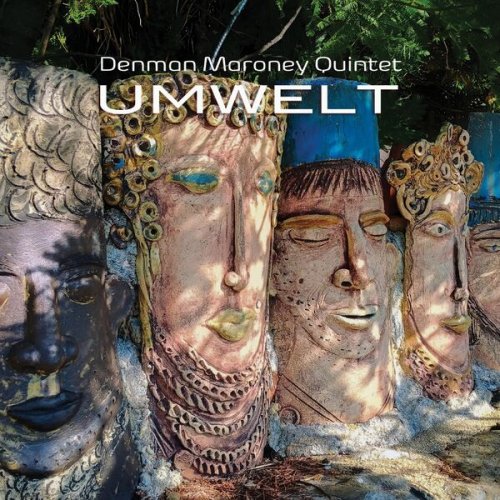
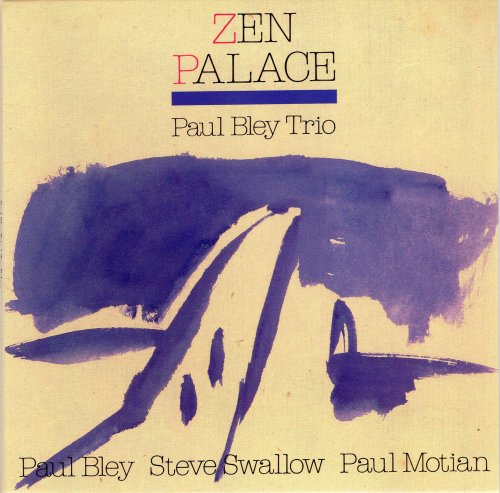
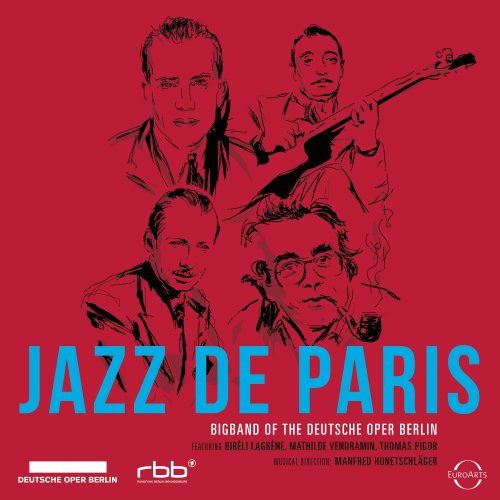
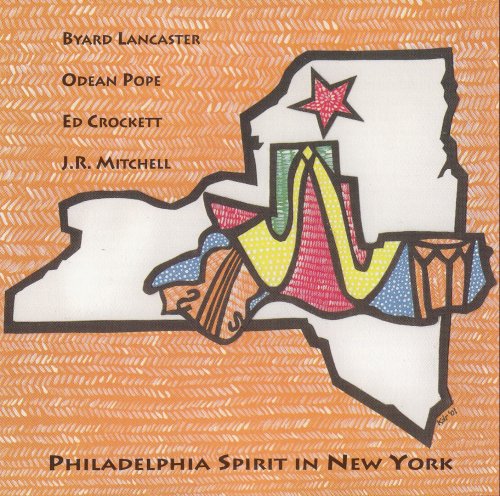
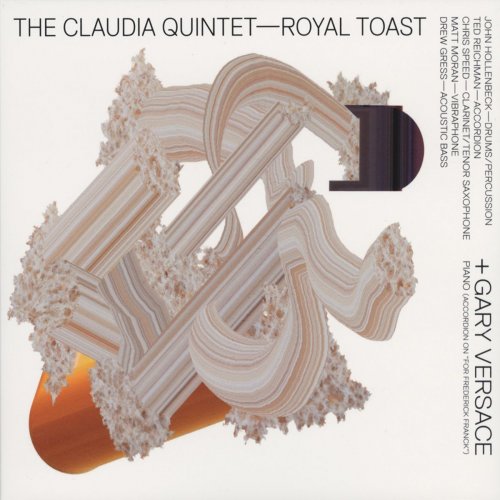
![Woo - Whichever Way You Are Going, You Are Going Wrong (Expanded Edition) (2026) [Hi-Res] Woo - Whichever Way You Are Going, You Are Going Wrong (Expanded Edition) (2026) [Hi-Res]](https://www.dibpic.com/uploads/posts/2026-01/1768384154_gjaj7otcbs28a_600.jpg)
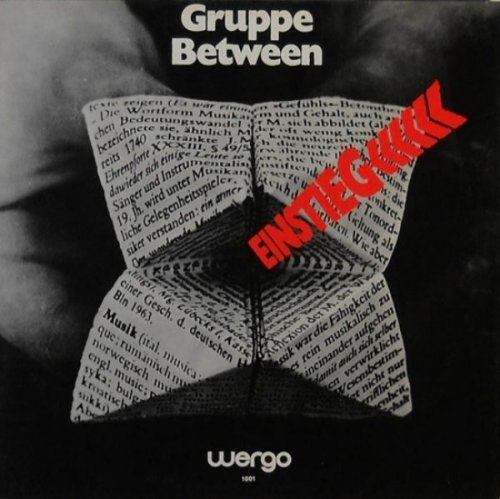
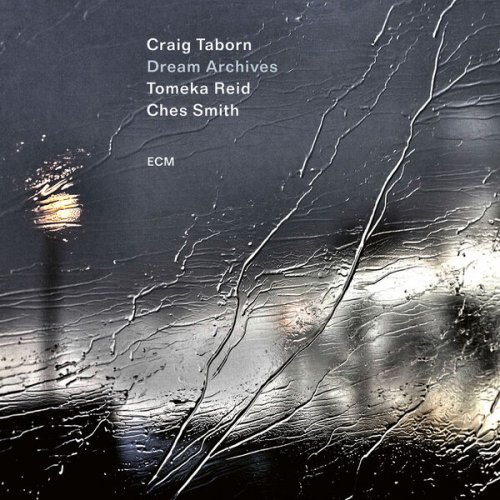
![Pops Juarez - Ensueno Electrico (Estudio) (2026) [Hi-Res] Pops Juarez - Ensueno Electrico (Estudio) (2026) [Hi-Res]](https://www.dibpic.com/uploads/posts/2026-01/1768739021_cover.jpg)